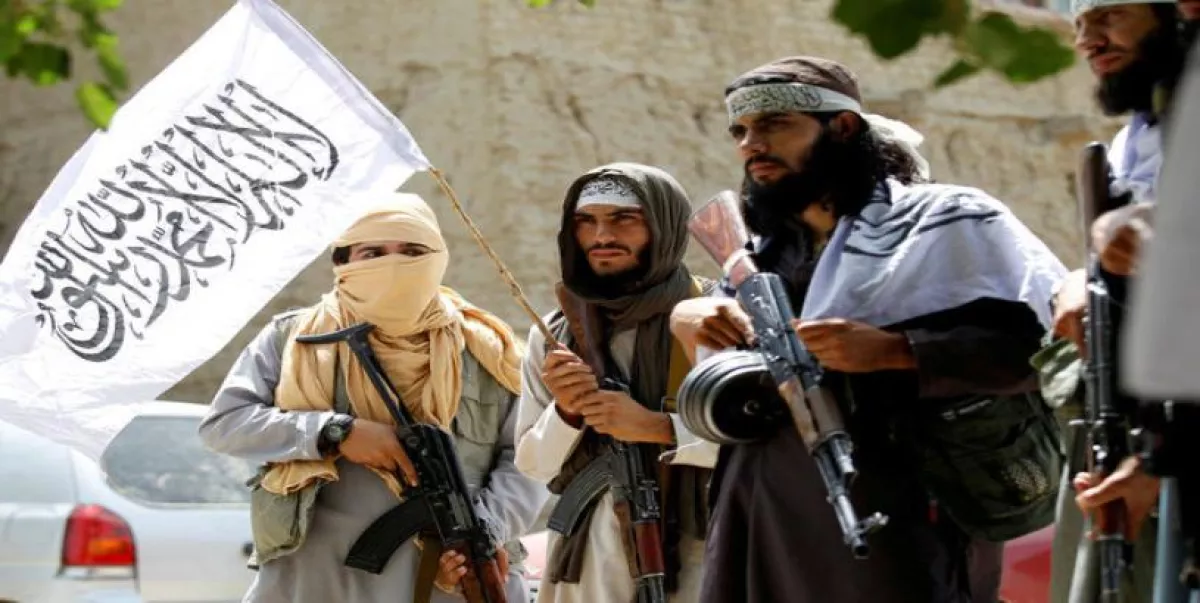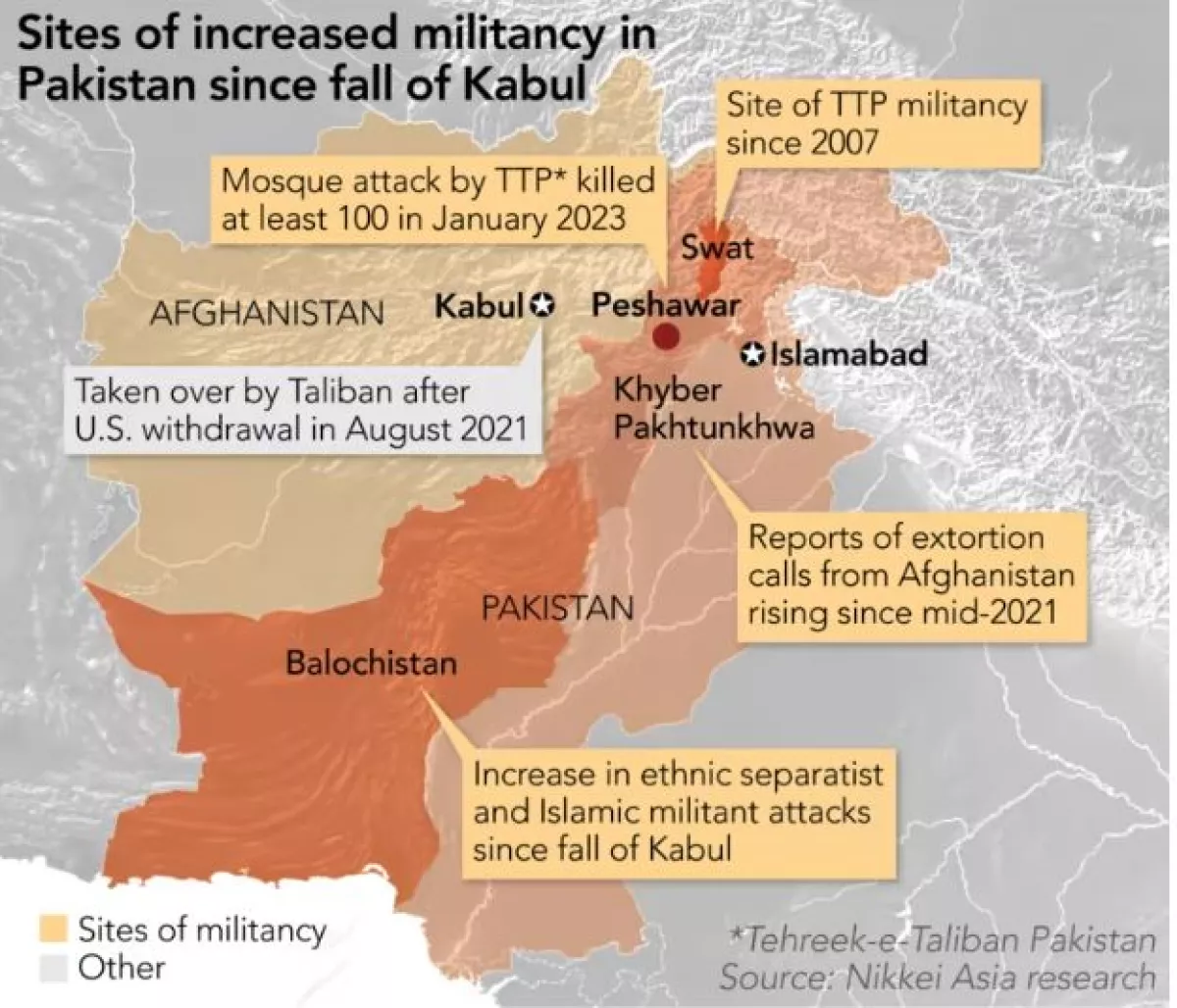Why did relations between Pakistan and the Taliban remain fraught? Tit-for-tat conflict
Since the Taliban's ascension to power in Afghanistan, its relations with former ally and neighbor Pakistan deteriorated significantly. Armed clashes on the border have become practically routine, worsening relations between large sections of the population in both countries.
Despite NATO withdrawal from the country in 2021 and partly recognition of the Taliban government, the Islamist Emirate is still juggling with internal instability due to the frequent attacks of various armed extremist groups. Those groups, namely the Tehreek-e-Taliban (TTP), a Pakistani branch of the Taliban, launched serial attacks on the Afghan-Pakistani border, targeting military and civilians. One of the TTP's primary demands has been for Pakistan's government and military to reduce their presence in the country's northwest. Hence, the TTP frequently carries out attacks in the region, where government control remains patchy.
As a result, the Pakistani military launched military operations in those areas against pro-Taliban groups while demanding the official Kabul take counter-measures to stop the attacks on its soil. As such, the Taliban government in Afghanistan describes the strikes as violations of its sovereignty. Despite Kabul’s refute, the Pakistani government accuses the Afghan Taliban of providing a safe haven to the TTP.

In the last two years, Islamabad decided to take additional measures against the Taliban government and its sympathizers by enforcing trade restrictions on its neighboring country, expelling 500,000 undocumented Afghan migrants, and implementing stricter visa policies at border crossings. Pakistan launched its crackdown on foreigners residing illegally, including Afghans, in October 2024, blaming them for a surge in nationwide terrorist acts.
Nevertheless, Pakistan has little power to stem the violence that overwhelmingly afflicts its two border regions with Afghanistan. Following the long-term military and financial support of the Taliban during the active phase of the Afghan war, Pakistan seems to have lost its previous leverage over it, thus becoming another target for the TTP.
The Taliban government's enormous efforts to gain international recognition in order to tackle the financial crisis and receive additional international aid dramatically undermined its domestic security issues. As a result, the Taliban's relations with neighboring countries, including Pakistan, strained steadily. Islamabad had initially hoped to capitalize on its history of cooperation with the Taliban after their takeover, albeit unsuccessfully. Instead, Pakistan experienced a surge in terrorism as the Taliban returned to power, emboldened and empowered the TTP.
On the other hand, continuous security cataclysms within Pakistan complicate its strategic partnership with China, which reportedly pressures the Pakistani military to tackle terror threats to secure further infrastructure works in these areas. However, neither Kabul nor Islamabad is able to offer a long-term solution to the terror problem as the Afghan de facto government represented by the Taliban does not seek to exert military pressure on various radical anti-Pakistan groups. Moreover, Kabul pushes back on Pakistan's demands for forceful action against the TTP.

Indeed, the Taliban is reluctant to ambush its local branches in the region, instead preserving them as leverage against regional actors, including Pakistan and Iran. Therefore, Islamabad’s attempts to exert pressure on the Taliban against the TTP will unlikely yield any result. In this regard, Pakistan will keep its frequent air raids against the TTP targets on Afghan soil despite Kabul's harsh criticism.
Consequently, the dispute between Afghanistan and Pakistan is not only about the TTP and pro-Taliban armed groups but also about the historical border disputes, namely the colonial-era Durand Line. Afghanistan has never recognized the border, but the Taliban has come out more strongly on the issue, and numerous skirmishes have erupted between Taliban fighters and Pakistani soldiers putting up border fencing. Considering that the Taliban ensured its control over the country, it does not need any more Pakistan’s aid and sanctuaries, seeking legitimacy and concessions on several issues, such as the borderlines.
Yet, the widespread pressures of Islamabad have caused the Taliban to sometimes think about mediation and peace talks between the TTP and Islamabad or form a special commission. Nevertheless, until today, Kabul and Islamabad failed to establish a new mechanism to jointly thwart armed radicals and TTP fighters.








